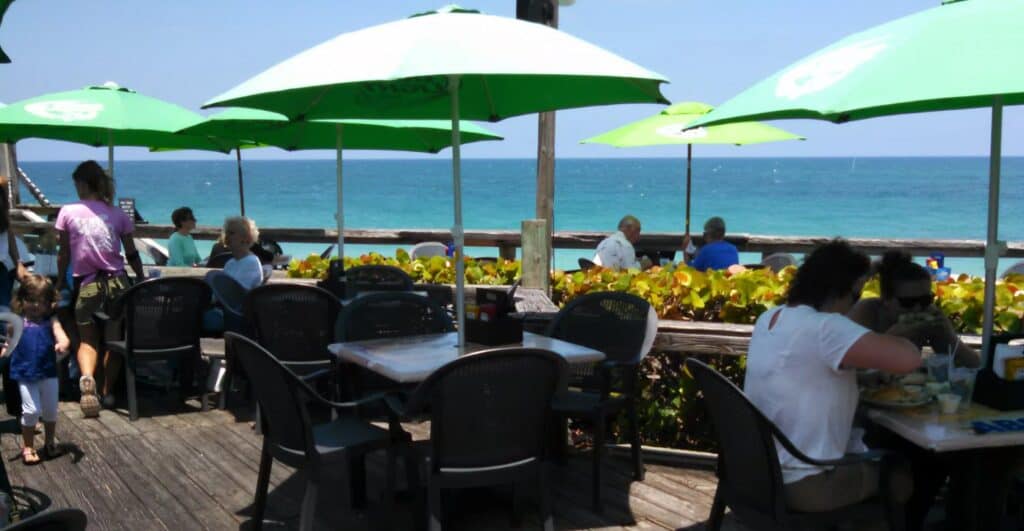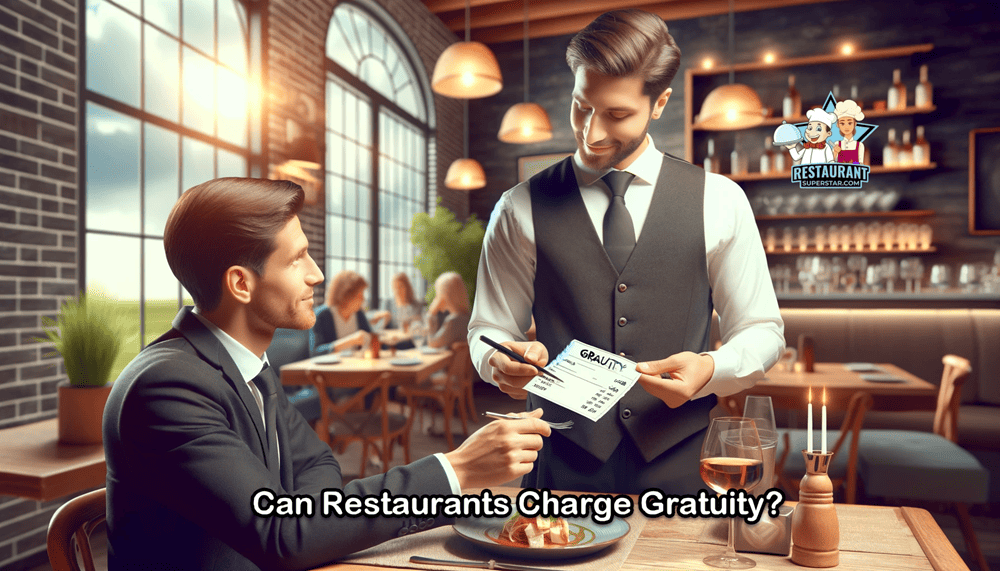How To Open a Restaurant In Florida

If you’re a restaurant owner looking for information on How To Open a Restaurant In Florida, you’ve come to the correct spot. This article will go into great depth on that question. So, How do you Open a Restaurant In Florida? Let’s take a look.
How To Open a Restaurant In Florida? Get a good Location for your restaurant business, follow all legal procedures, get the necessary licenses, and guarantee that your restaurant setting is suitable for your customers. You need the best, from the restaurant’s setting to the cuisine.
Regardless of its recognition, Florida is teeming with eager consumers looking for the most pleasing new thing. There are seasonal visitors, snowbirds, and the mysterious Florida Man. Florida is also home to one of the craziest, most inventive, and tastiest culinary wetlands in the nation due to its closeness to the Caribbean and South America, its thriving entertainment sector, and its insane attitude. It is also known for having a business-friendly environment, similar to Texas but with far prettier beaches.
More restaurants have opened up as a result of the growing amount of individuals who eat out to satisfy their appetites. Three in four customers prefer eating out with friends and family to cooking at home, and nine out of four individuals say they enjoy visiting restaurants.
You must make numerous considerations if you are a lover of food and want to open a restaurant to capitalize on this industry. To open a restaurant takes a significant amount of effort and time. Given the challenging procedure, you could have numerous inquiries about how to open a restaurant in florida.
How To Open a Restaurant In Florida
Planning Your Restaurant
Finding and preparing the actual location of your restaurant is usually adventurous and fun-filled. You want to make no mistake as you search for the best place out your restaurant can be located. You should not let the thrill make you lose focus on the most important in your sourcing process.
There are some quick questions you should ask yourself. Below are some examples
- Where in the big Florida city will you have your restaurant?
- Regarding the financing aspect, how much money do you have for a lease for a restaurant, and what kind of restaurant do you want to rent.
- What financing choices do you have for your Florida restaurant, and how do you intend to get some funding for your enterprise?
- Talking about your restaurant business team, are you smart enough to identify an Expert to be included in your team?
All these are questions you want to meditate intensely on and offer a solution to it. If possible, write down the possible solution.
Get Financing For Your Florida Restaurant
Many people believe that the restaurant business is a high-risk endeavor. Beyond your management and culinary abilities, you need more to succeed in this industry. The value of having sound financial knowledge cannot be overstated! Finding a reliable loan for your restaurant venture may be challenging. You would be required to adhere to a rigid payback schedule and provide collateral. . Managing your money might be a terrible endeavor, while you should be focused on which dishes will satisfy your clients.
However, keep in mind that lending institutions may perceive the restaurant industry as riskier than other businesses, making it more difficult to obtain loans for restaurant enterprises. However, restaurant financing options are available with lower minimum revenue or credit score criteria.
Term Loans
Restaurant managers in Florida can finance longer-term investments in their enterprise or use term loans to pay for immediate needs. Interest rates on term loans may be set at a fixed or variable rate, and collateral might be required or not. The repayment period can range from three months to five years.
The application process for these loans for restaurant businesses is time-consuming. In-person term bank loan applications typically take 14 to 60 days to be processed. Suppose your project has a flexible time frame, or you start seeking funding far before the time when you will need to have cash on hand to satisfy your needs. In that case, this can be a smart alternative for you.
Find an Equipment and Food Supplier
Make sure you locate a supplier and manufacturer in Florida for these significant food service equipment items who provides a fantastic guarantee on their products and an exceptional customer service program. Your dishwasher breaking down on a busy Saturday night is the last thing you want to happen.
Any restaurant owner hopes they will only need to invest in them once, after which they can forget about them altogether. Unfortunately, it’s unlikely that this will happen. Heavy-duty machinery eventually starts to malfunction. Parts start to degrade, pieces start to fall off, or perhaps your cooler stops operating effectively. It’s just typical wear and tear from daily use; it’s not your fault.
Find a trustworthy supplier that charges fair prices and offers first-rate customer service for some of the smaller items you’ll frequently need, like paper goods or cleaning supplies.
Equipment Financing
Restaurant equipment finance helps your business to buy pricey but required pieces of equipment without paying for it upfront—one of its key perks. By doing this, you can start using the equipment to make money without investing a sizable sum at once. In contrast to other choices, such as leasing restaurant equipment, you also own the equipment after the financing is paid off.
Calculators for financing are available to help you predict your repayment. For instance, the projected monthly cost for financing the acquisition of $50,000 worth of equipment over a two-year repayment period would be roughly $2,194. This estimate is predicated on the borrower having a personal credit score of at least 620 and at least three years of company experience.
Choose the financing options that will work best for you depending on the equipment you require. However, try to limit your options since submitting too many applications could harm your credit.
Short Term Loans
For small enterprises like restaurants, many online lenders offer short-term business loans. This financing enables the restaurant owner to borrow capital and repay it quickly, resulting in a lower overall dollar cost than a longer-term loan. Terms vary from three months and three years. A short-term business loan from an internet lender can be obtained much more quickly than a standard loan from a bank; usually, you can submit an application in a few minutes and receive funding within a few days. Many restaurant owners will take out a short-term loan to buy goods, remodel their dining room or kitchen, or replace broken cooking appliances like an oven or freezer.
Line Of Credit
When you require revolving, flexible capital for your restaurant, a business line of credit allows you access to it. You may borrow the amount you need with a line of credit. Pay off the outstanding balance, and have the money refilled so you can utilize the line again. Many restaurant owners find that having access to a line of credit makes it easier to pay their employees, manage payroll, and buy the supplies they need to keep their kitchens stocked.
Choose Your Restaurant’s Name and Legal Structure.
Choosing your restaurant’s legal structure is essential in getting it operational. There are modifications within each of the four fundamental options here: a sole proprietorship, a partnership, a limited liability company (LLC), and a corporation.
Many restaurants begin as sole proprietorships, which implies that the owners run their businesses as individuals without keeping separate accounts for their personal and professional lives. The significant distinction between partnerships and other business structures is that each partner is responsible for the debts and liabilities of all the other partners.
A partnership can also be created without official action or filing any papers. You should take a few actions first, though, before moving forward. A partnership agreement must be written and signed, licenses and permits must be obtained, and an EIN must be obtained.
Obtain a Business License
A government-issued license is an essential requirement to have before opening a restaurant. Every company or business that wants to operate in the United States must acquire a license to operate legally. This process frequently involves a $50 registration charge and a license filing fee, which can be priced anywhere between $25 and $500.
Every city has a database where you may get addresses located within its municipal boundaries because the license fee and rules depend on the address of your business. Simply Google your city’s name and “business license” to learn where to obtain one, and the US Small Business Administration (SBA) website can provide more information. Most of the time, you may just adhere to the instructions on your state’s government website or visit city hall to pick them up in person. The said license must be renewed every year; therefore, post the expiration dates in the back office or set a phone alarm to remind you.
Get Your Employer Identification Number (EIN)
You’ll also require an employee identification number when talking about employing workers. The IRS instructed this to you; in essence, it serves as a tax ID number. The IRS only issues one EIN daily, which is a fun tidbit. For once, obtaining an EIN is free, and you can apply online; you can request either by phone, fax, mail, or the IRS website, making it hassle-free.
Sign Permit
Do you want to install a beautifully crafted restaurant sign? For such, a permit is required. Your city determines the size, location, and cost.
Food Service License
To get the food service license, the health department in your city is responsible for issuing it. Therefore they will differ depending on the location. The food service license paperwork is the cause of the tense in-person visit from the health department. They make sure that your restaurant is running in line with the restaurant food safety rules, and they’ll occasionally return to make sure that rule is maintained.
A food service license application can be processed online using the restaurant’s name and location. The fees for foodservice licenses are frequently determined by restaurant segmentation, size measured in seats or units, and then location. Furthermore, the number of staff may have an input. But most frequently, prices are between $100 to $1,000.
Choosing a Location For Your Florida Restaurant
The location of your ideal restaurant is just as vital as its food. Location is essential, but so is the zoning of that location. Florida zones its land at the local municipal and county level, like most states, so you must be confident of your desired location before you even begin the process. Consult local legal professionals to ensure you adhere to all rules and regulations.
You’ll think about the bigger picture in addition to the necessary numbers and fine print. Florida is a place with several characters, and certain areas might be better suited for different sorts of food.
Target Demographic
Your target market is the demographic of customers you want to draw in, in this case, diners. They are the individuals that are most likely to patronize your restaurant.
Your restaurant’s target clientele is a particular subset of the more significant dining market. Target markets are chosen through a comprehensive review of demographics which is the division of the people into groups based on shared traits, including age, sex, income, education, religion, race, and location, and also psychographics which is the division of people into groups based on their attitudes, goals, and values.
You want to analyze your demographic segment’s behavior toward your potential customers, including purchasing patterns, spending patterns, internet habits, and hobbies.
Create Your Menu.
Except for those that are a part of franchise chains, every restaurant is different. Your menu can still be distinctive and different from other restaurants in the same niche, even if you’ve decided to open a casual family Italian restaurant.
One eatery may decide to concentrate more on pasta-based cuisine. At the same time, you might prefer to stick to regionally sourced, more conventional, and authentic cuisine.
Any facility in Florida that manufactures, processes, packs, holds, or prepares food or sells food at wholesale or retail is required to acquire an annual food permit, according to the Florida Department of Agriculture and Consumer Services (DOACS).
You need fewer than ten selections in each category, depending on the caliber and size of the business (appetizers, entrees, desserts, etc.) Your customers will soon feel overwhelmed by an excessive number of menu options, making them doubt their natural ability to make decisions.
Certificate of Occupancy
The zoning department will issue a certificate of occupancy after your business has passed the final building inspection. The building’s construction and maintenance have been proven to be proper by the certificate of occupancy.
The process for obtaining a certificate of occupancy differs depending on the structure of the building and from jurisdiction to jurisdiction. On your local government’s website, search for your state + certificate of occupancy and follow the instructions. Lastly, a certificate of occupancy costs $100 generally.
Music License
Adding music to a restaurant’s environment, mood, and unique look is essential to the dining experience. You must have a music license to play music in your restaurant establishment to avoid copyright infringement. This includes both except for those that are a part of franchise chains. Every restaurant is different. Your menu can still be distinctive and different from other restaurants in the same niche, even if you’ve decided to open a casual family Italian restaurant.
The penalties for performing music protected by copyright without a license can be as high as $30,000. You definitely don’t want to be sued by Beyonce or Chris Brown, so before you hire a DJ or hold a karaoke night, be sure you have a music license to protect your restaurant from these charges.
You can pay Broadcast Music Inc (BMI) or the American Society of Composers, Authors, and Publishers (ASCAP) directly on their websites, or you can use a licensed music solution that handles the payment on your behalf.
Resale Permit
If the commodities are bought to be used in producing goods for resale, a resale permit enables your restaurant to make specified tax-free purchases (such as wholesale food inventory, for example). In this approach, resale certificates stop the double collection of sales tax on these kinds of products. Now, sales tax is only collected when your buyer purchases the product, not when you do. The state then demands that the company submit frequent reports on the sales tax it has collected and then paid to the state.
Depending on your state of residency and annual revenues, you may need a sales permit. To locate the office where you should submit your application, look for resale numbers in your state. The majority of states offer options for both in-person and online applications. Concerning the price, from $0 to $50 can be spent on this permit.
Building Health Permit
Do you recall when your restaurant was inspected for a food service license? If your state demands it, and especially if you’re establishing an industry from scratch, your building may also need to be examined for the building health permit. When applying for a business license, a restaurant receives a health permit from the governmental or county health department. Routine health checks will be conducted at the site to ensure it’s clean.
A building health permit is not required by all states. To learn more about the procedures and regulations in your state explicitly addressing the building health permit, Google “your state” and “building health permit.” A building health permit may cost $50 to $1000 under the laws of your state.
Get Your Restaurant Ready For an Inspection.
The motto of the beach is “no shirt, no shoes, no problem.” However, even if grilling naked wasn’t a bad idea, your successful Florida restaurant will have some fundamental requirements.
Florida adopts a state-wide strategy, unlike other states where inspections are frequently conducted at the local county or city level. The Department of Business and Professional Regulation’s (DBPR) Division of Hotels and Eateries (DHR), which has a mouthful of a state department, is in charge of inspecting restaurants all around the state.
Restaurants are to undergo “must receive 1-4 unannounced inspections each year,” according to the DHR website. The type of food eaten, food preparation techniques, and inspection and compliance history are risk factors that affect how often inspections are conducted. Basically, you will want to be sure you have no food handling issues the more experimental you want to be with your menu and prepared foods.
Employee Health Permit
A health permit is required for the building and staff members handling food and beverages. The FDA has decided to dedicate training materials to protecting employee foot health. Employees must pass a food handler’s training authorized by the state and acquire a permit. To avoid spreading food-borne disease, food handlers are taught correct sanitation methods, food storage, and handling skills.
To find out more about the standards in your state and specific requirements. Simply Google “your state” and “employee health permit.” The price ranges from $100 to $500, depending on the state.
Seller’s Permit
A seller’s permit enables a state to certify an enterprise as a sales tax collector. You should learn more about this permit if you run a restaurant in Florida. In some states, this license or permit may also be known as a “sales tax” license. Most enterprises, particularly those in the food and beverage sector, must get both a seller’s permit and a resale certificate.
To apply for a seller’s permit online, go to your local government’s website. There is usually access to online registration, phone support, and in-person support. The seller’s permit application is free, but if the restaurant closes and you owe taxes, you might need to put down a security deposit. When you apply, the sum of this deposit will be determined.
Liquor License
A liquor license is required if you, as a restaurant owner, want to serve alcohol in your restaurant. The requirements for acquiring and maintaining a liquor license differ by state, as with other permits and licenses. However, one thing is for sure. They are challenging to acquire and effortlessly simple to lose. The Alcohol Beverage Control Board controls the sale of alcohol in each state. Therefore be diligent about being diligent about adhering to your state’s ABC rules.
Activities such as an accumulated mass list of offenses, serving too many people, being rude, employing untrained service personnel, selling alcohol during prohibited hours, and selling to minors, can result in the seizing of your license by higher authorities. Don’t be shocked if your rare gem of a paper could be gone permanently in just a twinkling of an eye over just one incident. In the worst-case situation, it proves to be a significant loss for your company and, maybe, much more damaging, a loss of confidence in the eyes of the community people.
Set Up Accounting Documents
Restaurant accounting is very different from accounting in other businesses because these products are usually perishable. A tiny restaurant frequently adjusts its inventory level in response to consumer demand. The company must also consider several things when doing business, including labor expenses and the cost of goods sold (COGS). Restaurant accounting practices differ from firms in other sectors due to these distinctions.
Cash transactions form the foundation of the cash accounting technique. Small pubs and restaurants with fewer patrons adopt this technique.
As a result, they won’t owe the restaurant any money after the meal is finished. This is very unlike other businesses, like buildings, where payment is made after reality. Additionally, it indicates that eateries typically have no accounts receivable balance. As a result, it is simple to record payments and revenues as they come in.
Balance Sheet
A balance sheet outlines your restaurant’s assets, liabilities, and equity. It displays the net worth at a particular point in time. Your balance sheet allows you to forecast your short- and long-term cash flow and evaluate your current financial situation. By looking at your cash statement, you can determine whether you are breaking even, earning a profit, or losing money.
However, you can automate reporting and data tracking by integrating your Point of Sale (POS) system with current restaurant operations software. Thanks to automated daily reporting, it is quick and straightforward to prepare your P&L statement.
Income Statement
In the restaurant industry, managing a profit and loss statement (P&L) is critical. Still, it may be challenging because the industry has some of the tightest profit margins, and your company has many moving parts.
However, when handling your restaurant’s finances, make sure to let your personnel know what’s in your P&L. Because your workers and business will profit more from your ability to be more upfront about money and KPIs.
Cash Flow Statement
Even though a restaurant business may sell assets or obtain outside funding, most of its cash should come from operating cash flow, which is the sum of the money made from food and beverage sales less the money used for operating expenses. A restaurant cash flow statement is a valuable tool for both operators and investors. This is used to study how their business compares to the competition. Using a restaurant cash flow statement, one can measure the success of a specific business.
Consider Hiring a Bookkeeper or Accountant
If you own a restaurant, whether you like it or not, you will have to deal with money and the tiresome work of bookkeeping. The operations of your restaurant depend on having current, accurate information and visibility into your cash flow. One thing you should remember is that bookkeeping is quite different from accounting, even if you have been handling these responsibilities yourself or having your accountant handle them for you.
Your day-to-day financial transactions are handled by a bookkeeper, who also keeps track of your sales tax liabilities, pays your suppliers, and reconciles your accounts once a month. On the other hand, an accountant handles your taxes, conducts audits, counsels your restaurant on reducing costs, controlling menu pricing, and even looking into prospective expansion options.
Invest In The Proper Restaurant Equipment
You should already be working on submitting a plan review to DBPR, which outlines the essentials of what basic equipment you’ll need if you’re appropriately setting up your Florida restaurant. But in addition to the necessities like stoves, sinks, and pots and pans, never undervalue the significance of location when deciding to operate a restaurant.
Restaurant POS System
There are several opportunities to provide a memorable dining experience for customers from the moment they walk into your restaurant to when they leave. Food must be prepared, staff must be on hand, and everything must go smoothly.
A robust and dependable restaurant POS system can automate many of your daily activities, freeing up your time to concentrate more on pleasing your patrons.
A modern restaurant POS system can automate sales, labor, and inventory metrics tracking, streamline internal operations, and connect all of the staff needed to keep your restaurant running efficiently. This helps reduce employee turnover, order errors, wait times, and stress levels while increasing sales, profit, and customer happiness.
Hire The Right Staff
Every restaurant has a few or many distinct characteristics. To ensure the success of your restaurant, selecting the appropriate employees is a crucial first step.
Your restaurant’s employees are its most significant resource. They are in charge of the management, the service, and the food. To get to that point, you must know how to find, recognize, and hire the kind of person who will bring out the best in your restaurant.
Advertise Your Restaurant.
You need a strong restaurant marketing strategy because eateries have a severe rivalry. You must arm yourself with the creative, strategic, and competitive inspiration required to attract, please, and keep customers.
Since it depends on your industry, target market, geographic area, and other factors, there is no one “best technique” to market a restaurant.
CONCLUSION
You will be well on your way to starting a profitable business if you heed our advice on opening a restaurant in Florida. Although starting a restaurant requires a lot of effort, with the proper plan and strategy, stress may be minimized.
Jeff Smith is a Restaurant Consultant with over 20 years of hospitality experience ranging from server to owner and general manager. He focuses on Restaurant POS technology as well as restaurant marketing. Make sure to check out our world famous restaurant resources resources page for a comprehensive offering of hand picked resources and tools to help your business. You can also check out some of our other restaurant business articles.




